Emotional Intelligence and Leadership in the Workplace
VerifiedAdded on 2022/12/12
|5
|819
|352
Homework Assignment
AI Summary
This assignment delves into the core principles and practical applications of emotional intelligence (EI) within a leadership context. It explores the crucial link between emotionally effective leaders and their capacity to inspire workers, outlining how self-awareness, self-control, and effective communication contribute to achieving business objectives. The assignment addresses the importance of communicating with a diverse workforce, considering cultural display rules, and how EI can be utilized to build strong workplace relationships by effectively managing stress and conflict. It includes examples of emotional strengths and weaknesses, questions to gather feedback on EI skills, and identification of emotional triggers. Furthermore, the assignment examines the significance of emotional control for managers and leaders, and proposes strategies to foster the development of emotional intelligence in others. The assignment covers topics from the BSBLDR511 module at Mercury Institute of Victoria.
1 out of 5
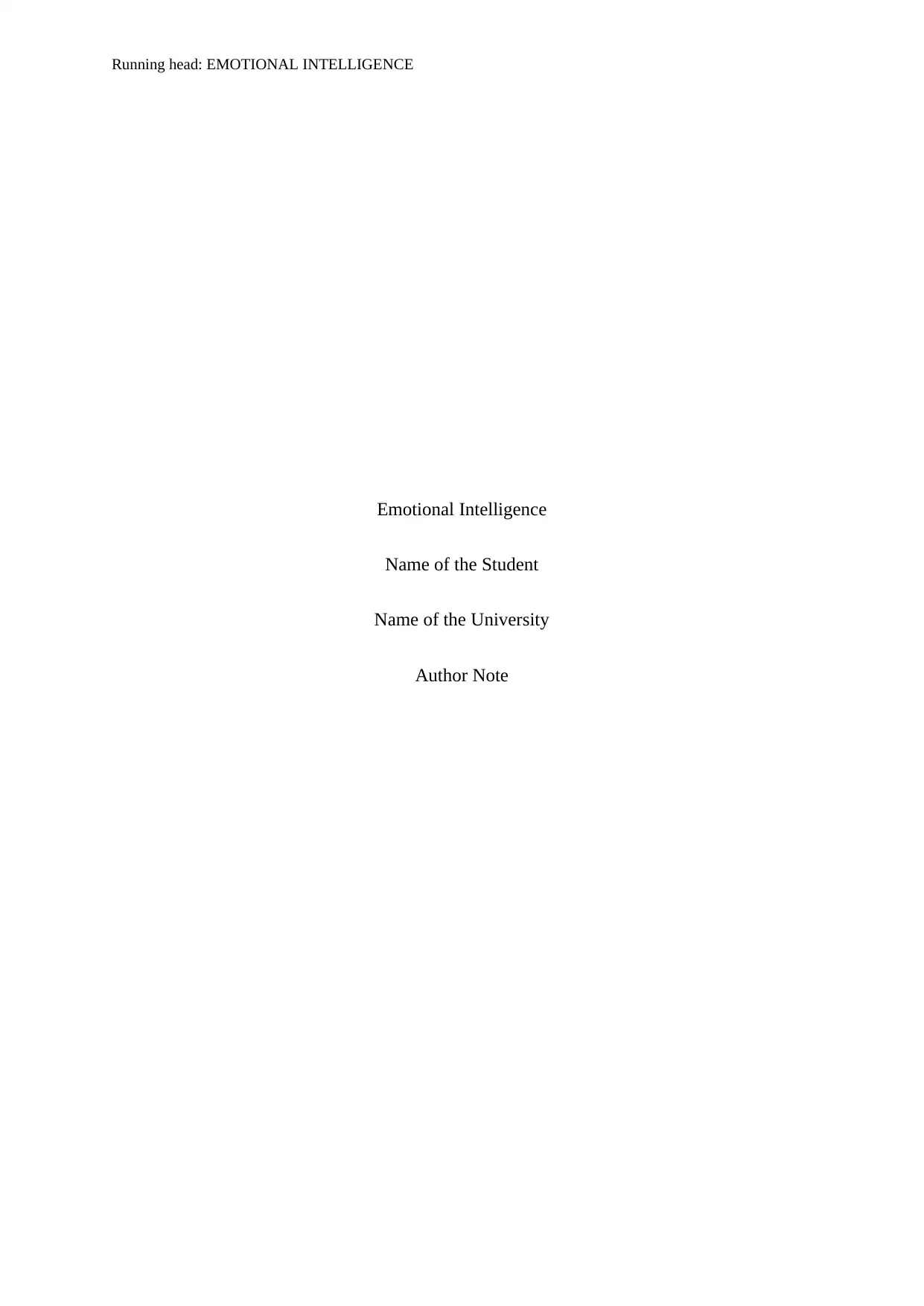
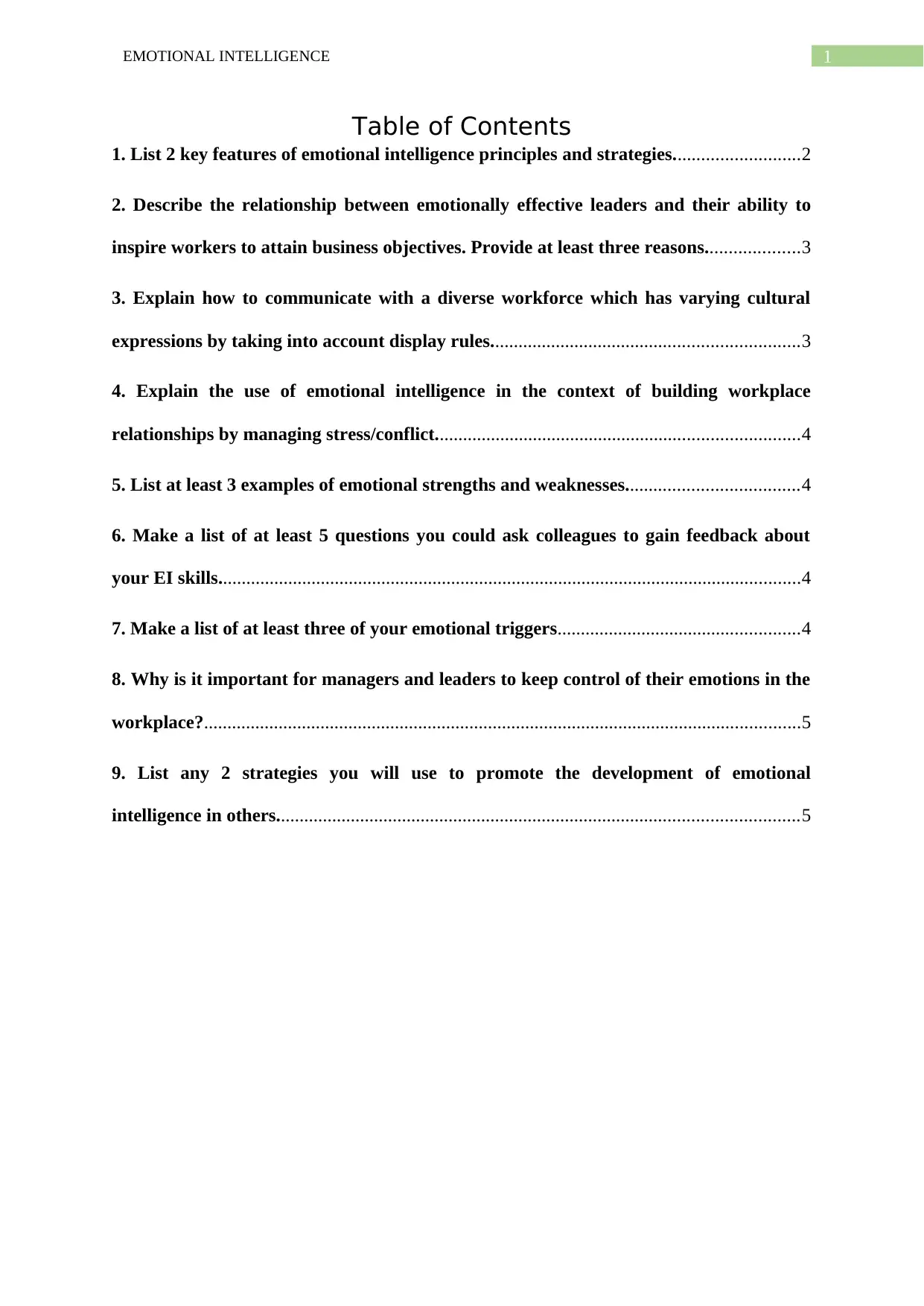
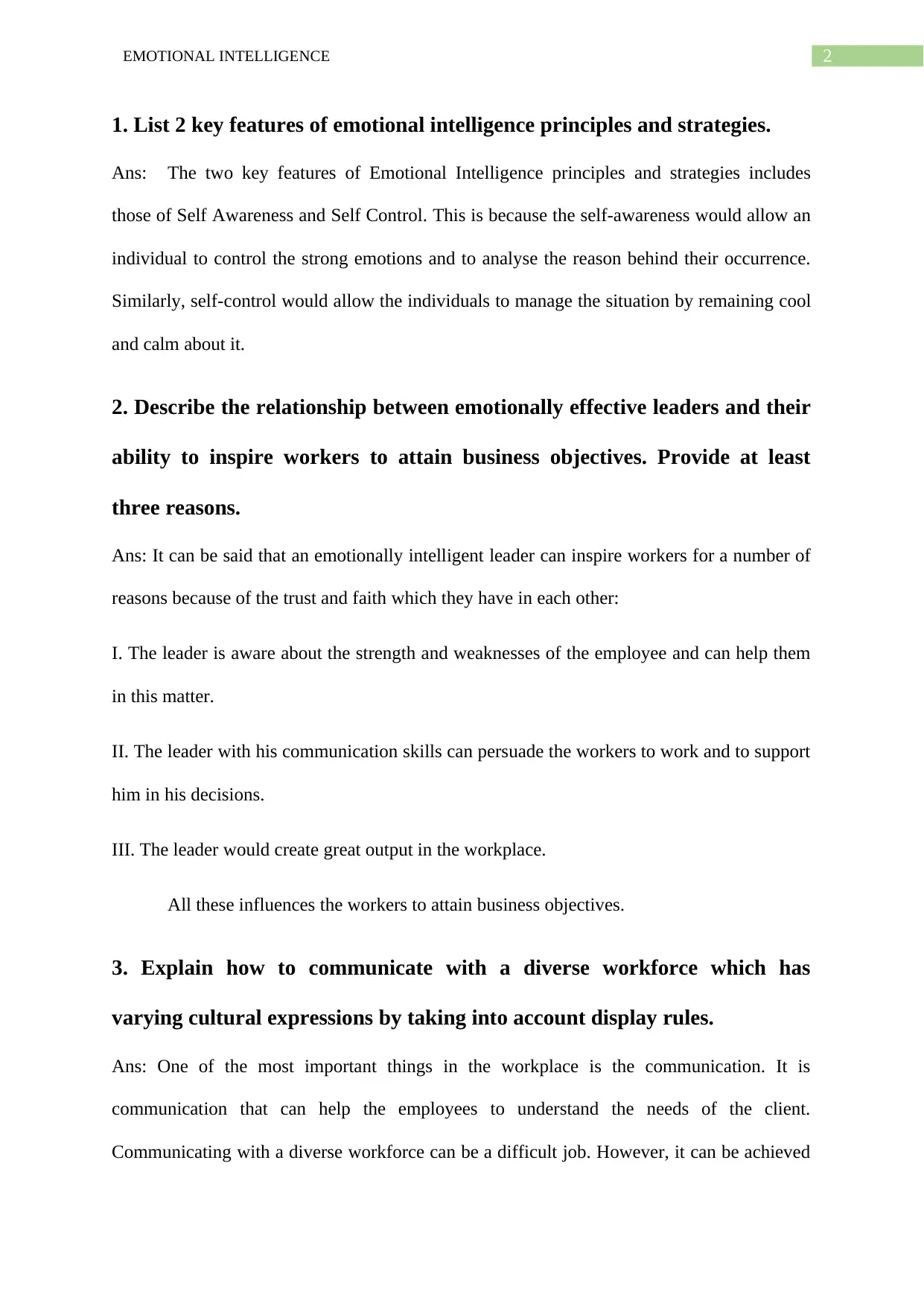

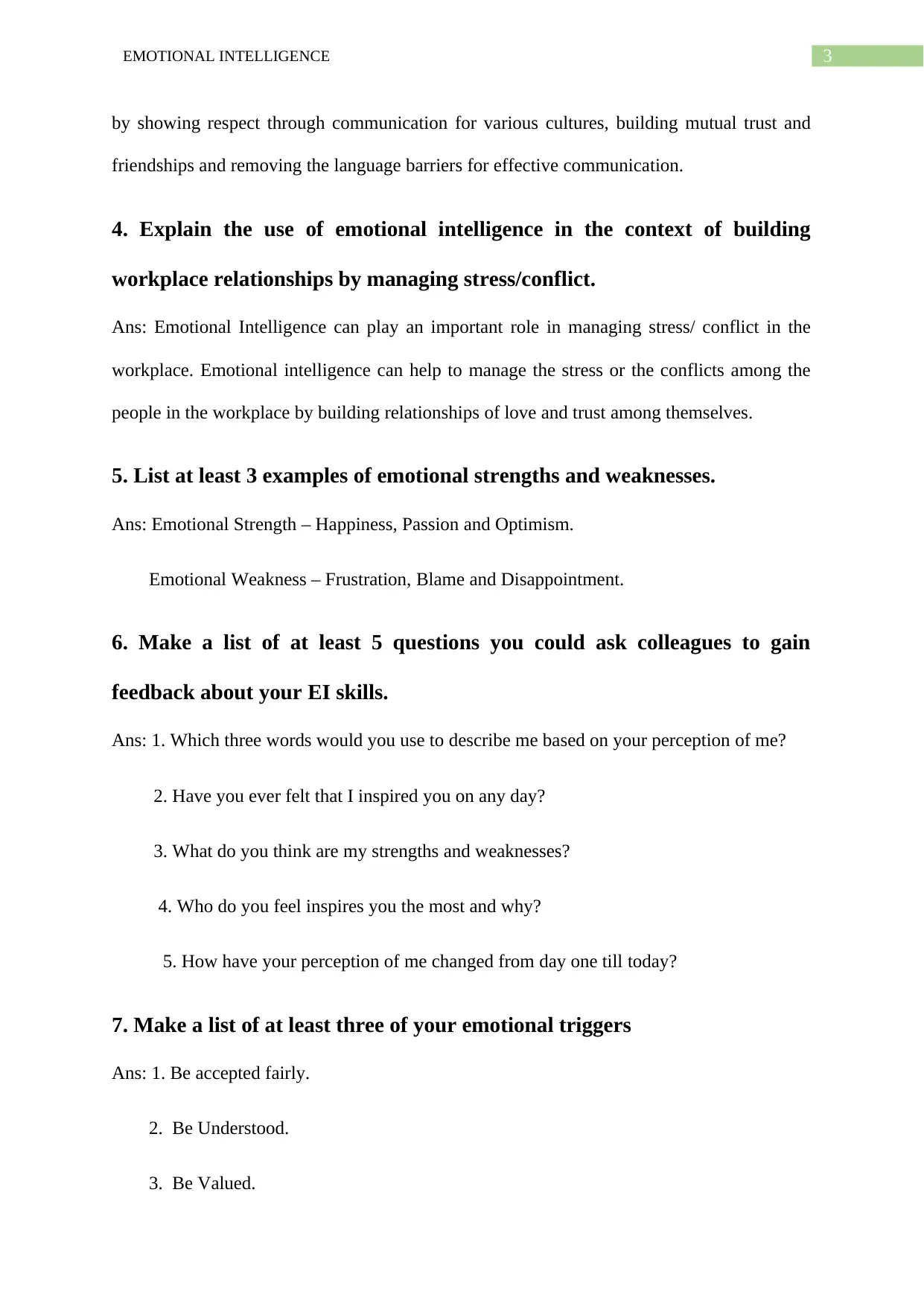
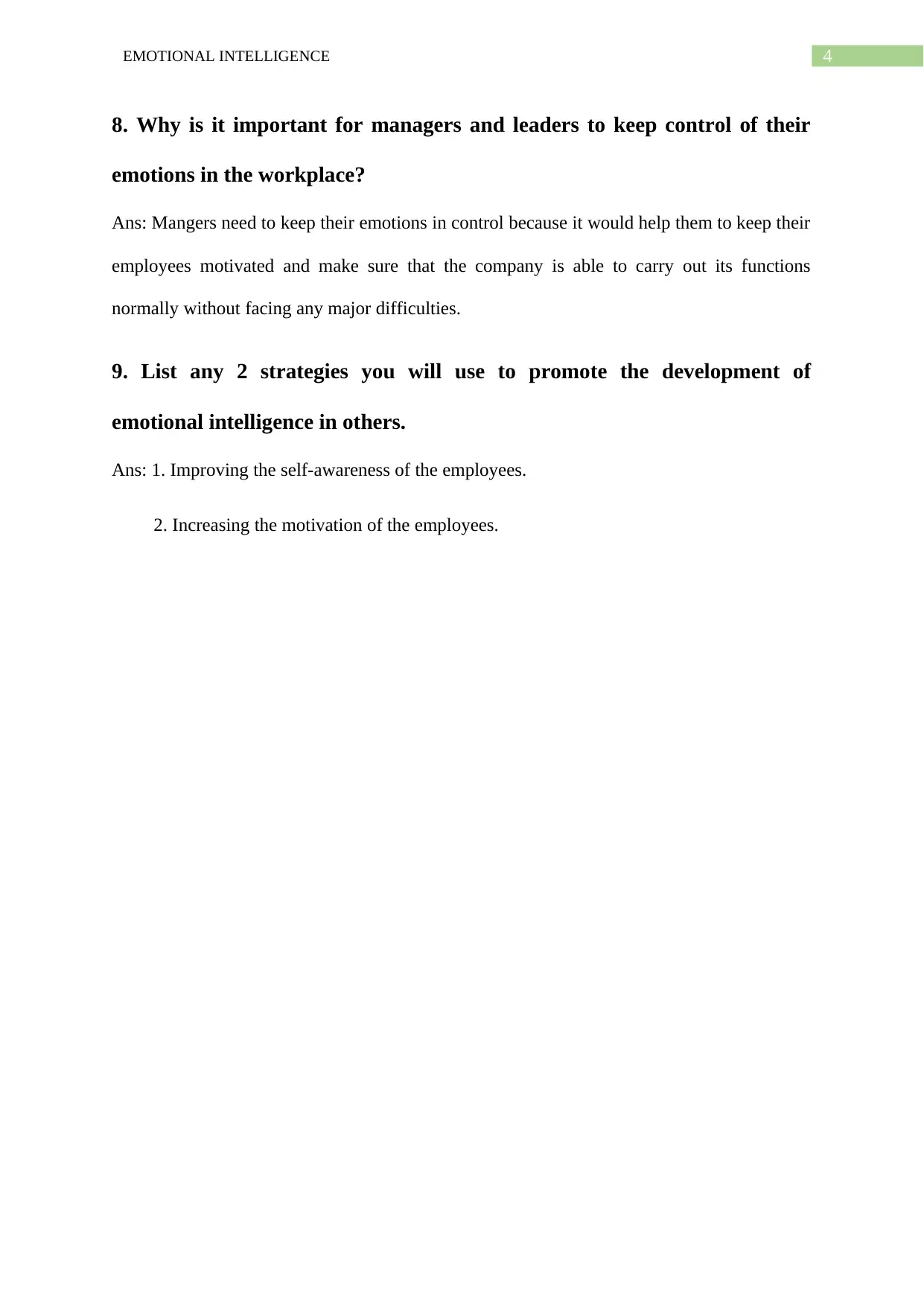





![[object Object]](/_next/static/media/star-bottom.7253800d.svg)